Bali, the famed Island of the Gods, offers more than its well-trodden paths and bustling beach clubs. Beyond its surface lies a world of hidden gems, from secluded beaches to mystical waterfalls, ancient temples untouched by mass tourism, and villages where traditional Balinese life flourishes. This guide invites the discerning traveler to explore Bali’s less-visited corners, offering a deeper and more authentic experience of this enchanting island.
1. Sidemen Valley
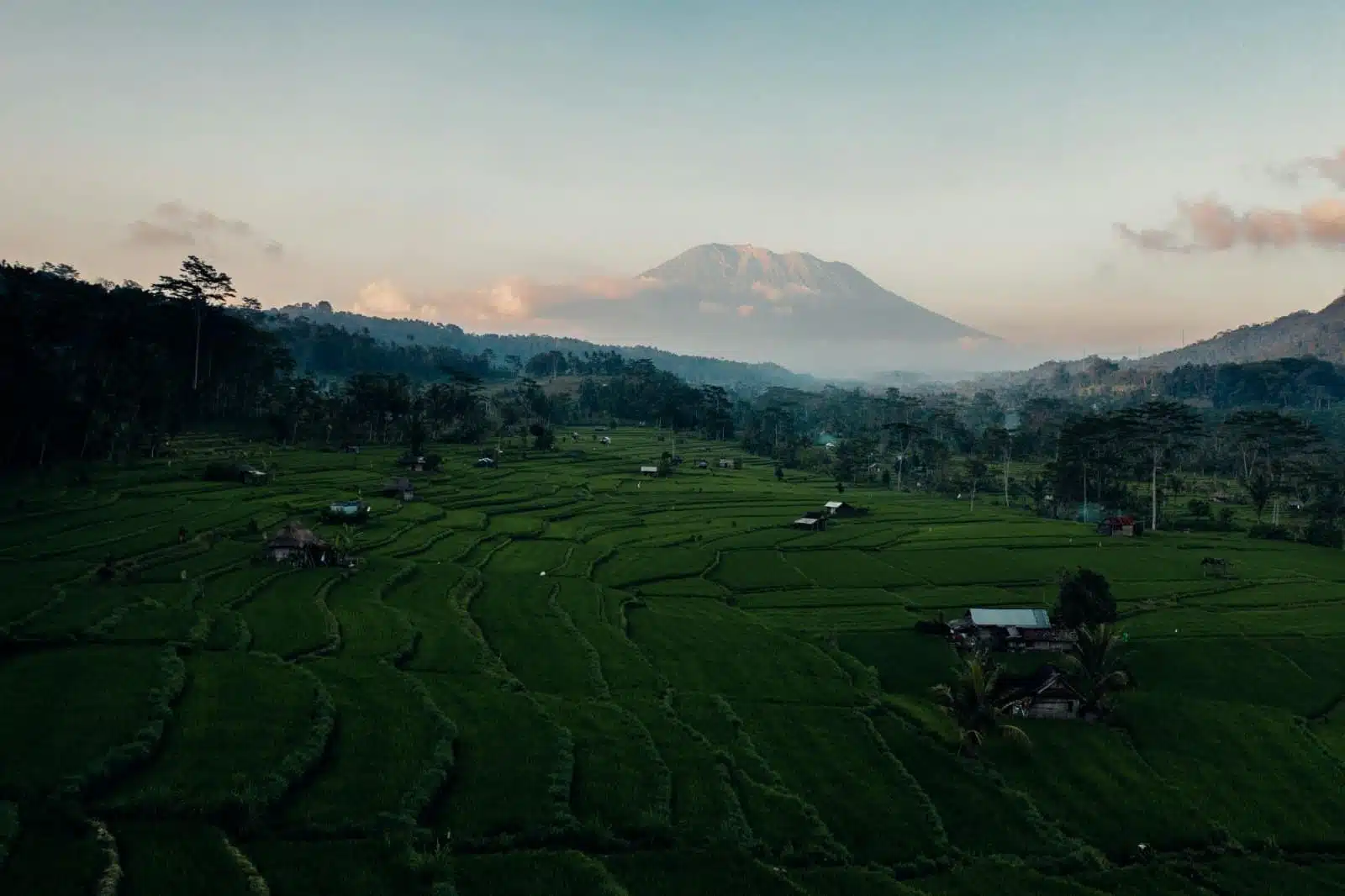
Image Credit: Pexels / Sam Kolder
Nestled in the eastern part of Bali, Sidemen Valley is a serene landscape of lush green rice terraces and traditional villages shadowed by the majestic Mount Agung. This area remains relatively untouched by the island’s tourism boom, offering a glimpse into the rural Balinese way of life. The valley is a haven for those seeking peace and natural beauty, with opportunities for trekking, cycling, and engaging with local artisans.
Insider’s Tip: Visit Cepik Villa Sidemen for a traditional cooking class that uses fresh ingredients from the surrounding farms.
When to Travel: The dry season from April to September offers clear skies and cooler temperatures, ideal for outdoor activities.
How to Get There: Sidemen Valley is about a 90-minute drive from Denpasar. Renting a scooter or hiring a private driver are the best ways to reach this secluded paradise.
2. Tirta Gangga Water Palace
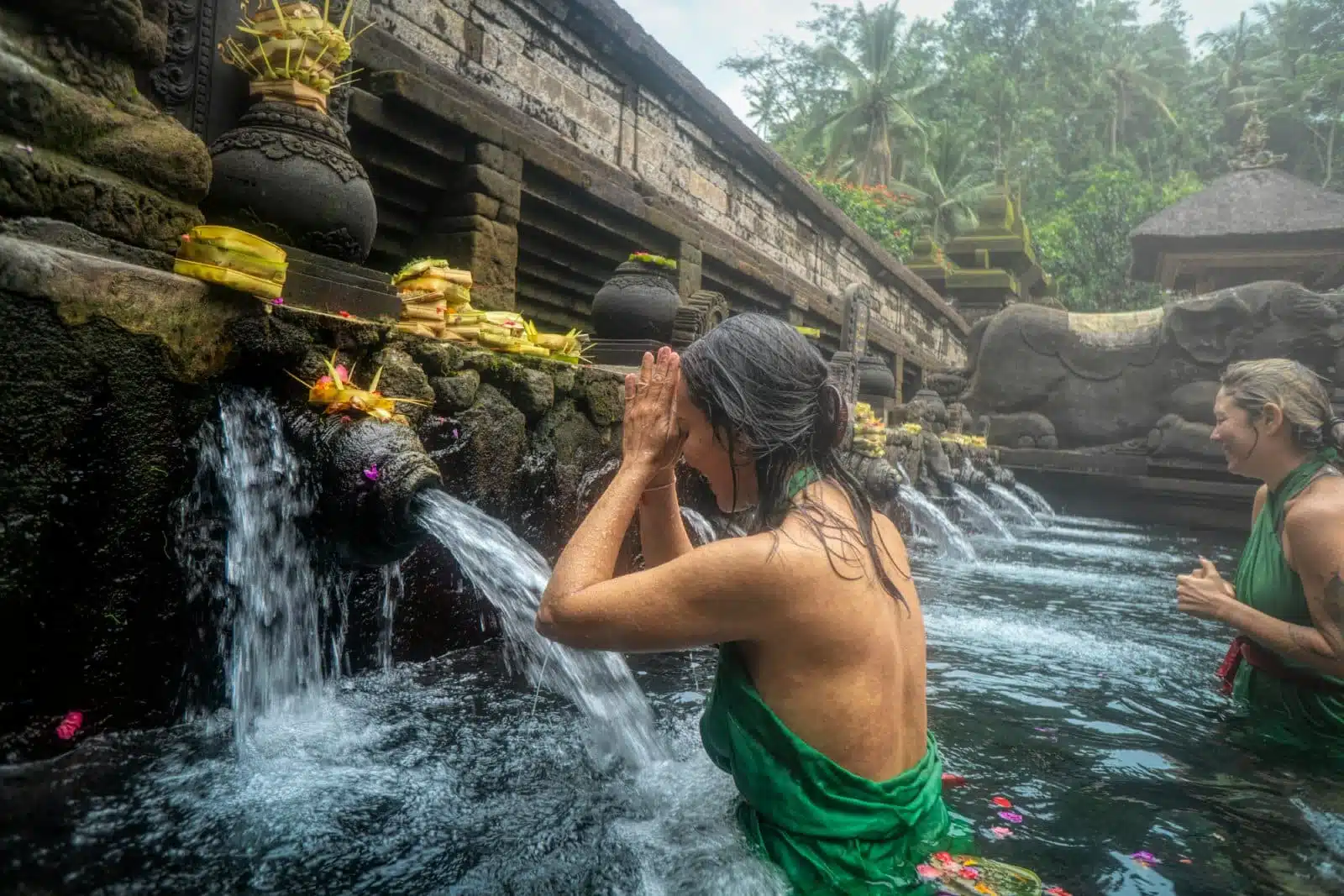
Image Credit: Pexels / Oleksandr P
Tirta Gangga, a former royal palace located in the east of Bali, is a unique blend of Balinese and Chinese architecture, featuring ornate gardens, stone sculptures, and crystal-clear pools fed by natural springs. This historical site is often overlooked by mainstream tourism, making it a peaceful retreat where visitors can immerse themselves in the island’s royal heritage and natural beauty.
Insider’s Tip: Arrive early in the morning to have the place almost to yourself, offering the best light for photography and a serene atmosphere.
When to Travel: Visit during the early dry season months of April and May when the gardens are lush, and the crowds are fewer.
How to Get There: Tirta Gangga is accessible by a two-hour drive from Ubud. Public transport options are limited, so consider a private car or scooter rental for flexibility.
3. Pemuteran and Menjangan Island
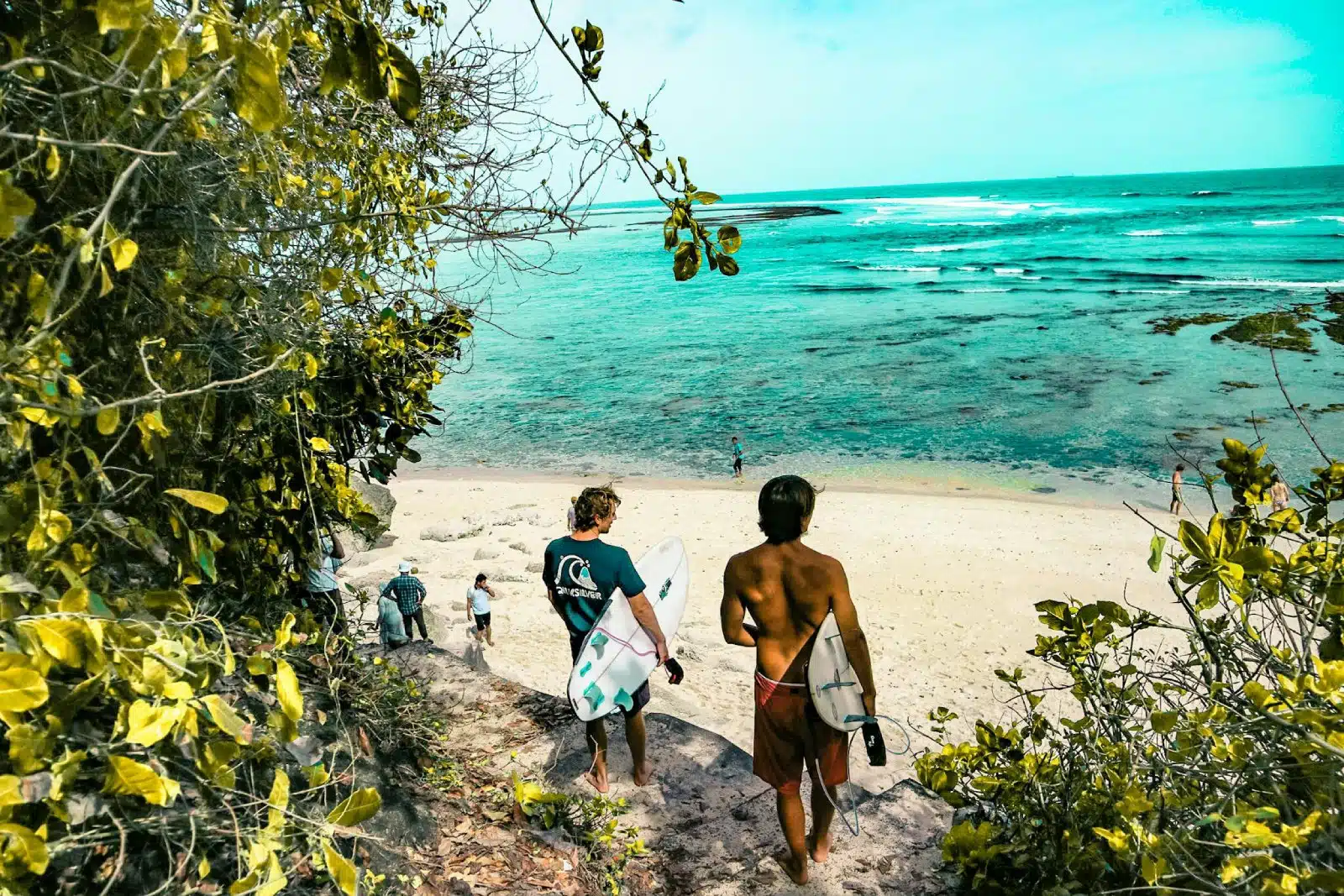
Image Credit: Pexels / Khairul Leon
Pemuteran, a small fishing village on the northwest coast of Bali, is the gateway to the pristine waters and vibrant coral reefs of Menjangan Island. This area is renowned for its diving and snorkeling, offering some of the best underwater experiences in Bali. The village is an eco-tourism model, with community-run coral restoration projects and a ban on motorized water sports to protect marine life.
Insider’s Tip: Participate in a coral planting activity to contribute to the area’s conservation efforts while experiencing the underwater world.
When to Travel: The dry season from April to October offers the best conditions for diving and snorkeling, with calm seas and clear visibility.
How to Get There: Pemuteran is about a four-hour drive from Denpasar. The journey itself is scenic, passing through the central highlands of Bali.
4. Sekumpul Waterfall
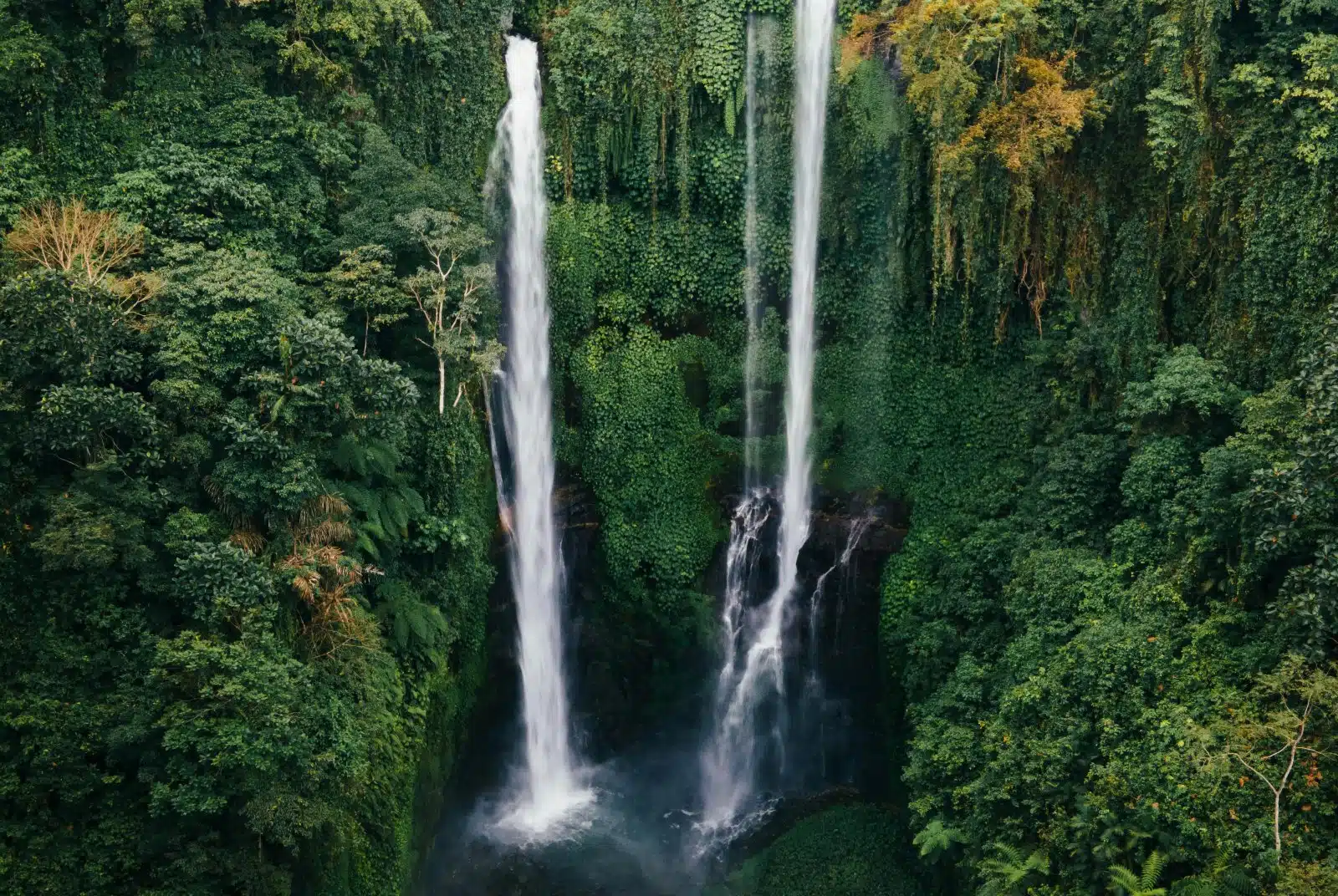
Image Credit: Pexels / Joe Fikar
Sekumpul Waterfall, located in the northern region of Bali, is often hailed as the most beautiful waterfall on the island. A series of seven cascades set amidst a lush jungle, reaching Sekumpul requires a bit of effort, including a trek through local villages and down steep steps, but the reward is a breathtaking natural spectacle rarely matched elsewhere.
Insider’s Tip: Hire a local guide in the village for an insightful trek that includes hidden paths and viewpoints not found on maps.
When to Travel: From November to March, the rainy season fills the rivers, making the waterfalls especially powerful and picturesque.
How to Get There: Sekumpul is about a three-hour drive from Ubud. The last part of the journey involves a trek, for which sturdy footwear is recommended.
5. Jatiluwih Rice Terraces
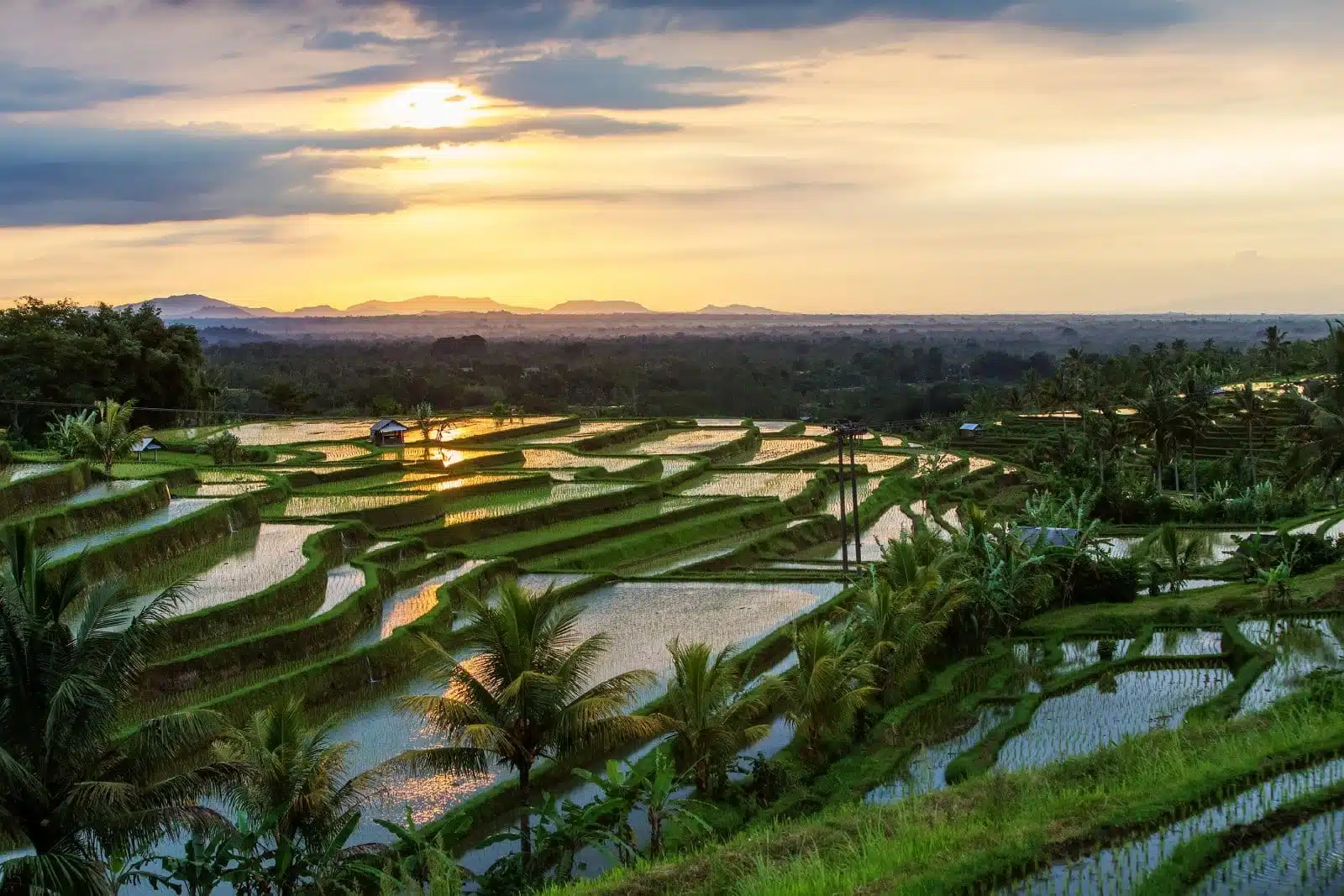
Image Credit: Shutterstock / My Good Images
A UNESCO World Heritage site, the Jatiluwih Rice Terraces span over 600 hectares of verdant, sculpted landscapes. This area offers a stunning example of Bali’s subak system, a traditional water management method used by Balinese farmers for centuries. The terraces provide a picturesque setting and insight into the agricultural practices that shape the island’s culture and traditions.
Insider’s Tip: Embark on a cycling tour through the rice terraces to appreciate their beauty from different vantage points while learning about the subak system from a local guide.
When to Travel: The terraces are most vibrant from February to April, just before harvest, when the fields are at their greenest.
How to Get There: Jatiluwih is located in the Tabanan Regency, about a two-hour drive from Denpasar. The roads are well-maintained, making it accessible by car or scooter.
6. Amed
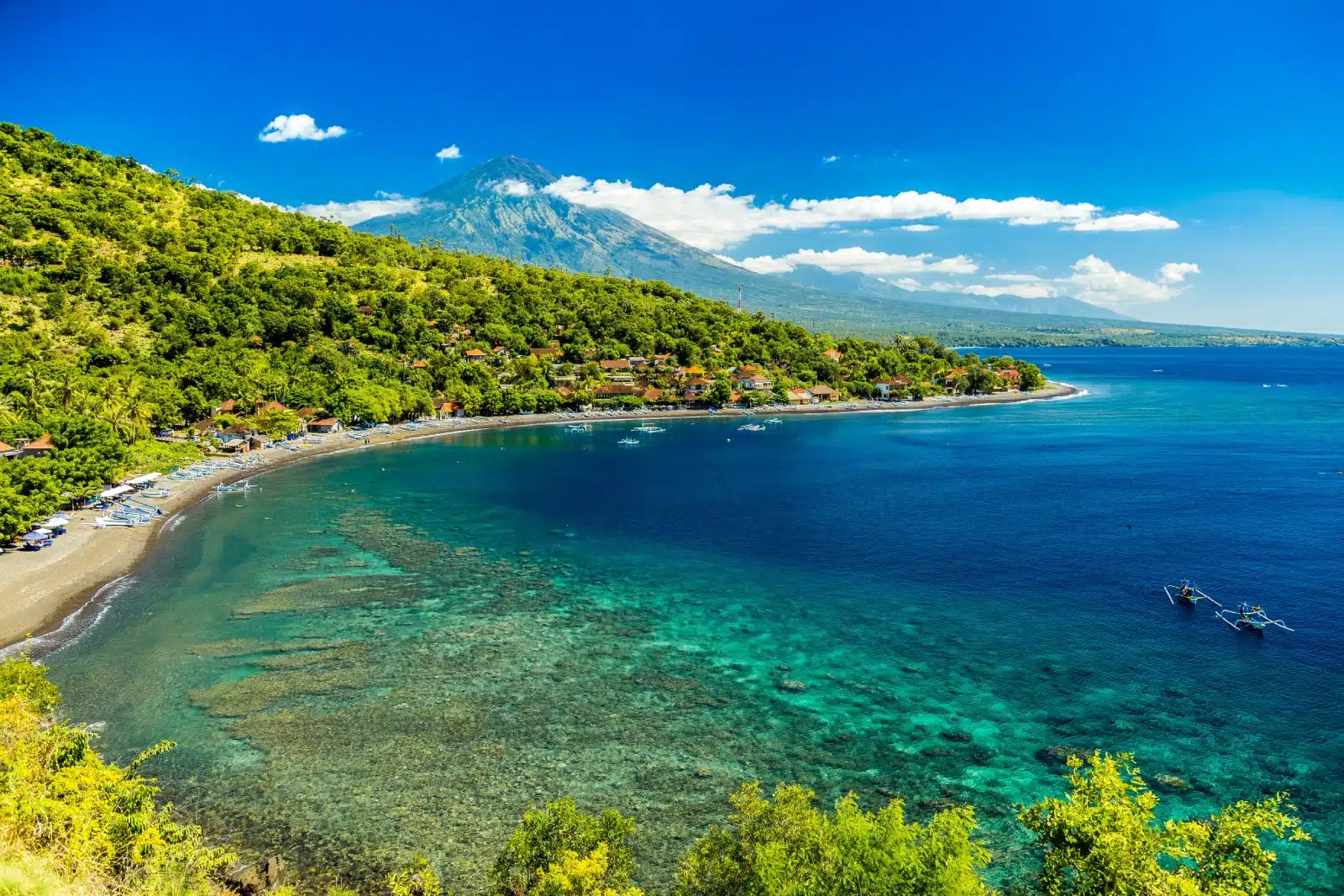
Image Credit: Shutterstock / Valentin Ayupov
Amed, a peaceful fishing village on Bali’s northeast coast, is renowned for its laid-back atmosphere, traditional salt farming, and excellent snorkeling and diving spots. The black volcanic beaches contrast sharply with the vibrant coral reefs just offshore, making Amed a unique destination for water enthusiasts and those looking to escape Bali’s more tourist-centric areas. The slow pace of life here is infectious, encouraging visitors to unwind and soak in the natural beauty.
Insider’s Tip: Rent a scooter to explore the coastline and discover secluded spots for snorkeling and diving. The USS Liberty Shipwreck in nearby Tulamben is a must-visit for divers.
When to Travel: The dry season from April to October offers the best conditions for diving and snorkeling, with clear waters and abundant marine life.
How to Get There: Amed is about a 3-hour drive from Denpasar Airport. The route is scenic, with the road hugging the coastline for much of the journey.
7. Penglipuran Village
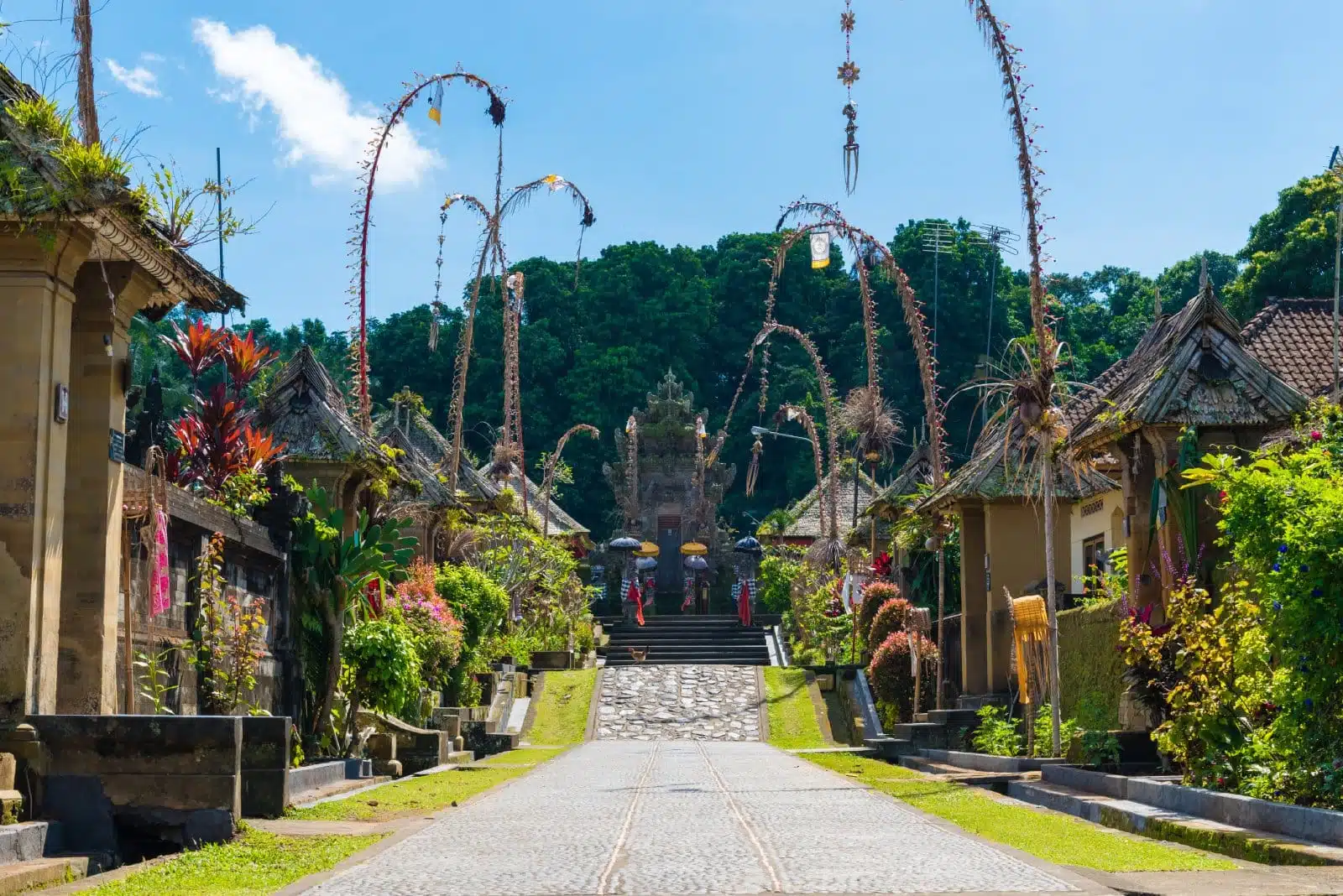
Image Credit: Shutterstock / Constantin Stanciu
Penglipuran Village stands as a bastion of Balinese culture and architecture, remarkably preserved and free from the encroachment of modern vehicles. This traditional village in the Bangli district is renowned for its orderly bamboo-lined streets, uniformed gateways, and homes that offer a glimpse into the traditional Balinese way of life. The village layout is a testament to the community’s strong adherence to ancestral customs, designed to reflect Balinese Hinduism’s philosophical and spiritual values. Visitors to Penglipuran can explore the harmonious blend of human habitation and nature, with the sacred forest at the village’s edge embodying the Balinese belief in the sanctity of nature.
Insider’s Tip: Engage with local families who open their homes to visitors for a small donation. This interaction provides deeper insight into Balinese village life’s daily routines, traditional crafts, and architectural nuances.
When to Travel: The cooler, drier months from April to October offer the most comfortable climate for exploring the village and its surrounding landscapes.
How to Get There: Penglipuran Village is approximately a 1-hour drive from Ubud. The journey is easily made by scooter or car, allowing for a scenic drive through Bali’s central highlands.
8. Bali’s Northern Lakes: Tamblingan and Buyan
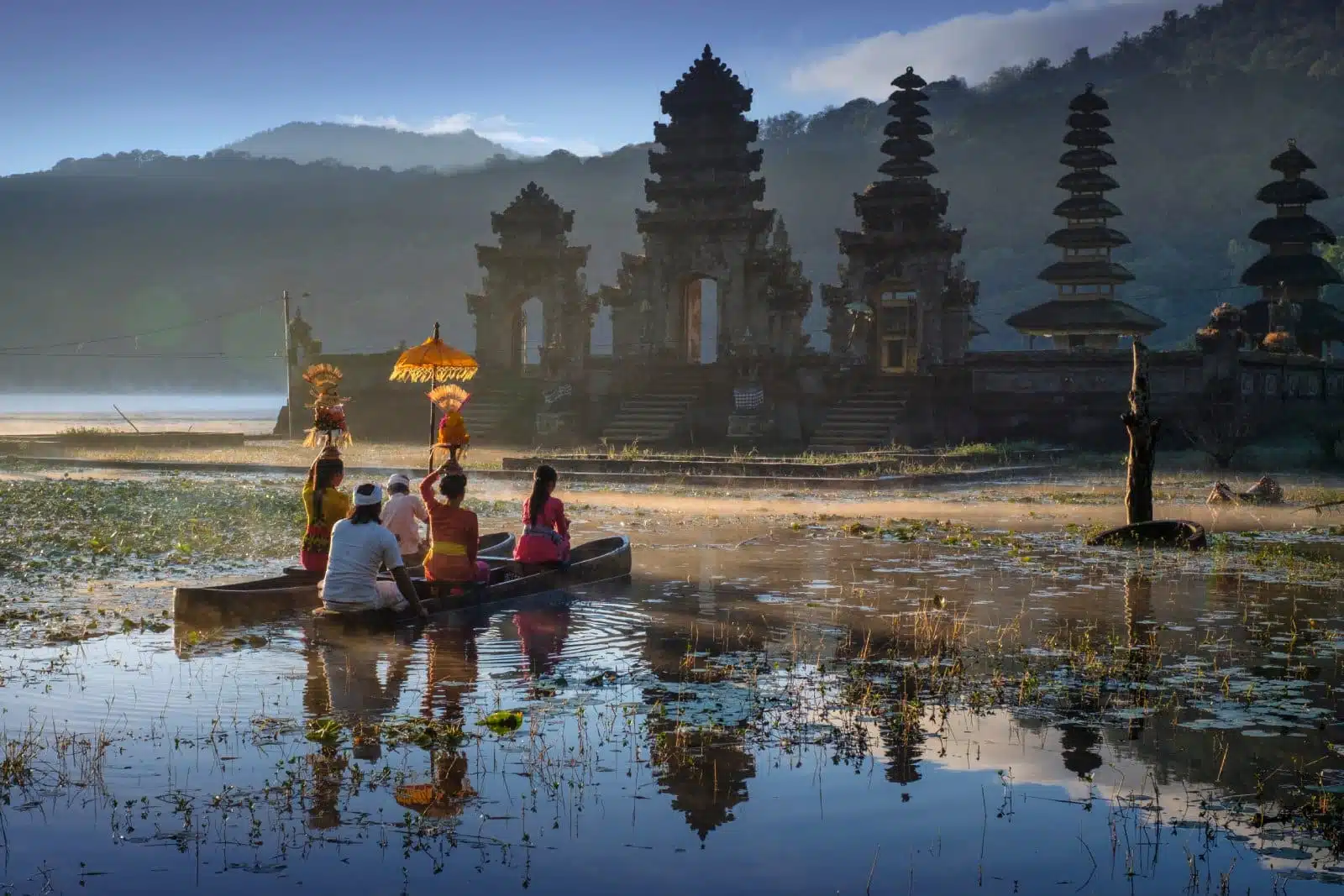
Image Credit: Shutterstock / Gathot Subroto
Nestled in the highlands of central Bali, the twin lakes of Tamblingan and Buyan are surrounded by dense rainforest and offer a tranquil escape from the island’s coastal crowds. These lakes are part of Bali’s central mountain range, serving as crucial water sources for the island and habitats for a diverse range of flora and fauna. The area around the lakes is ripe for exploration, with trekking, canoeing, and photography opportunities. The serene atmosphere and the misty mountain backdrop make this region one of Bali’s most picturesque landscapes.
Insider’s Tip: For a unique experience, embark on a traditional canoe ride on Lake Tamblingan at dawn. The early morning light combined with the mist rising from the lake creates a mystical atmosphere, perfect for photography enthusiasts.
When to Travel: The best time to visit is during the dry season, from April to September, when the paths are less muddy and the views are unobstructed by fog.
How to Get There : The lakes are located near the village of Munduk, about a 2 to 3-hour drive from Denpasar. The route offers scenic views of Bali’s northern countryside.
The Bottom Line
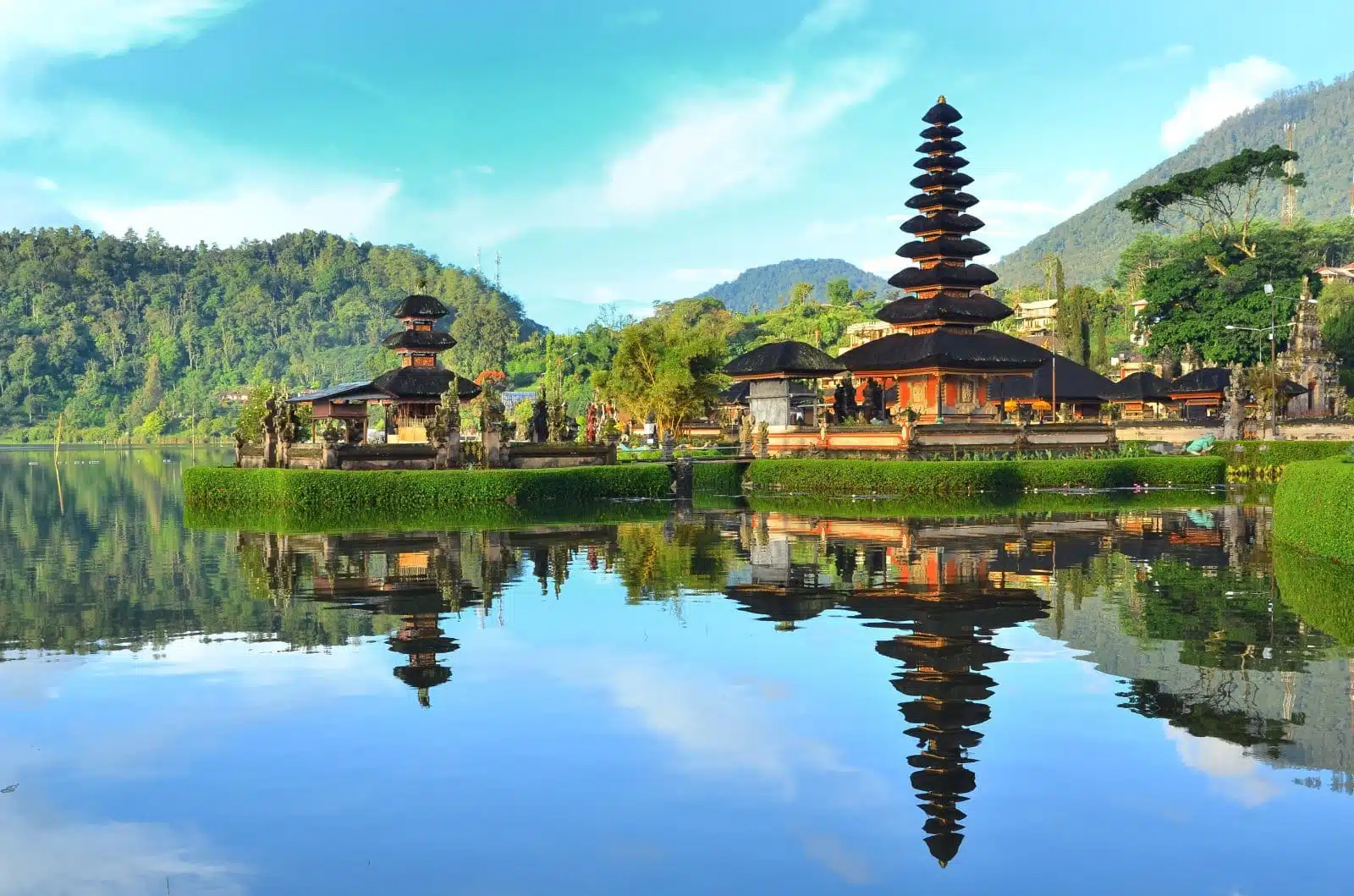
Image Credit: Shutterstock / kravka
Bali’s hidden gems offer a retreat into the island’s untouched beauty and cultural depth. From the serene landscapes of Sidemen Valley to the underwater wonders of Amed, these lesser-known destinations provide a tranquil counterpoint to Bali’s bustling tourist hubs. As you explore these secluded spots, you’re invited to connect with the essence of Bali, experiencing the island’s majestic nature and rich traditions firsthand. Embrace the adventure, and let Bali’s hidden gems reveal themselves, one breathtaking view at a time.
More From The Green Voyage
12 Best Practices for Sustainable Travel in 2024 – How to Travel With Minimal Environmental Impact
Unlocking Hotel Perks – A Traveler’s Guide to Maximizing Hotel Reward Programs for Optimal Benefits
Travel Hacks for Frequent Flyers – 6 Tips and Tricks to Make the Best of Air Travel
The post Exploring 8 Hidden Gems of Bali – A Traveler’s Guide 2024 first appeared on The Green Voyage.
Featured Image Credit: Shutterstock / PhotoSunnyDays.
For transparency, this content was partly developed with AI assistance and carefully curated by an experienced editor to be informative and ensure accuracy.
Tips for Trip Success
Book Your Flight
Find an inexpensive flight by using Kayak, a favorite of ours because it regularly returns less expensive flight options from a variety of airlines.
Book Your Hotel or Special Accommodation
We are big fans of Booking.com. We like their review system and photos. If we want to see more reviews and additional booking options, we go to Expedia.
You Need Travel Insurance!
Good travel insurance means having total peace of mind. Travel insurance protects you when your medical insurance often will not and better than what you get from your credit card. It will provide comprehensive coverage should you need medical treatment or return to the United States, compensation for trip interruption, baggage loss, and other situations.Find the Perfect Insurance Plan for Your Trip
